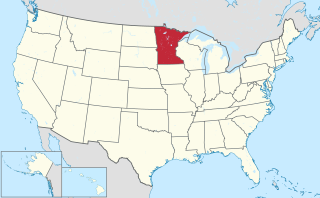
The Socialist Party of America (SPA) was a socialist political party in the United States formed in 1901 by a merger between the three-year-old Social Democratic Party of America and disaffected elements of the Socialist Labor Party of America who had split from the main organization in 1899.

Norman Mattoon Thomas was an American Presbyterian minister who achieved fame as a socialist, pacifist, and six-time presidential candidate for the Socialist Party of America.

The Green Party of Minnesota is a green political party in the U.S. state of Minnesota. It is affiliated with the Green Party of the United States.
Peacemakers was an American pacifist organization founded following a conference on "More Disciplined and Revolutionary Pacifist Activity" in Chicago in July 1948. Ernest and Marion Bromley and Juanita and Wally Nelson largely organized the group. The name “Peacemakers” was taken from a section of the Bible, the Beatitudes or Sermon on the Mount: "Blessed are the peacemakers, for they will be called children of God." The group’s organizational structure adopted a multidivisional organizational structure with a loose hierarchy, prioritizing local committees including but not limited to the Tax Refusal and Military Draft Refusal Committee. The Peacemakers were social anarchists whose organizational beliefs are largely attributed to Marxist philosophy. Peacemakers aimed to advocate nonviolent resistance in the service of peace.
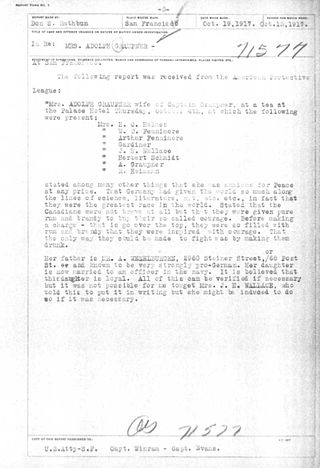
The American Protective League (1917-1919) was an organization of private citizens sponsored by the United States Department of Justice that worked with Federal law enforcement agencies during the World War I era. Its mission to identify suspected German sympathizers and also to counteract the activities of radicals, anarchists, anti-war activists, and left-wing labor and political organizations. At its zenith, the APL claimed 250,000 members in 600 cities.
The American Union Against Militarism (AUAM) was an American pacifist organization established in response to World War I. The organization attempted to keep the United States out of the European conflict through mass demonstrations, public lectures, and the printed word. Failing in that effort with American entry into the war in April 1917, the Union battled against conscription, action which subjected it to state repression, and military intervention. The organization was eventually dissolved after the war in 1922.
Industrialisti was a Finnish-language newspaper published from Duluth, Minnesota, United States. Founded in 1914 under the name Sosialisti, the newspaper was politically linked to the Industrial Workers of the World. It was published daily, but was converted into a fortnightly in its later years.

Opposition to World War I included socialist, anarchist, syndicalist, and Marxist groups on the left, as well as Christian pacifists, Canadian and Irish nationalists, women's groups, intellectuals, and rural folk.

Thomas H. Van Lear was an American politician who served as the 28th Mayor of Minneapolis from January 1, 1917 to January 6, 1919. Van Lear was a member of the Socialist Party of America.

A peace movement is a social movement which seeks to achieve ideals such as the ending of a particular war or minimizing inter-human violence in a particular place or situation. They are often linked to the goal of achieving world peace. Some of the methods used to achieve these goals include advocacy of pacifism, nonviolent resistance, diplomacy, boycotts, peace camps, ethical consumerism, supporting anti-war political candidates, supporting legislation to remove profits from government contracts to the military–industrial complex, banning guns, creating tools for open government and transparency, direct democracy, supporting whistleblowers who expose war crimes or conspiracies to create wars, demonstrations, and political lobbying. The political cooperative is an example of an organization which seeks to merge all peace-movement and green organizations; they may have diverse goals, but have the common ideal of peace and humane sustainability. A concern of some peace activists is the challenge of attaining peace when those against peace often use violence as their means of communication and empowerment.

Frank Bohn was an advocate of industrial unionism who was a founding member of the Industrial Workers of the World. From 1906 to 1908 he was the National Secretary of the Socialist Labor Party of America, before leaving to join forces with the rival Socialist Party of America. After World War I his politics became increasingly nationalistic and he left the labor movement altogether.
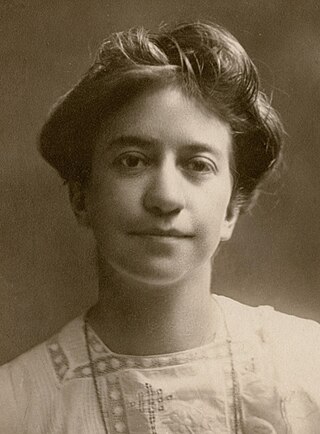
Jessie Wallace Hughan was an American educator, a socialist activist, and a radical pacifist. During her college days she was one of four co-founders of Alpha Omicron Pi, a national fraternity for university women. She also was a founder and the first Secretary of the War Resisters League, established in 1923. For over two decades, she was a perennial candidate for political office on the ticket of the Socialist Party of America in her home state of New York.
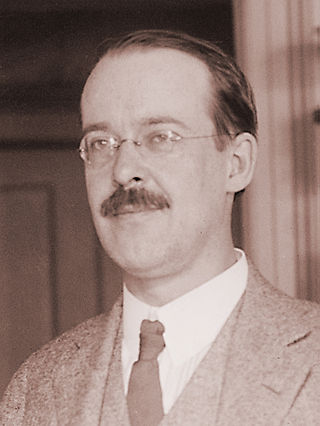
Algernon H. "Al" Lee was an American socialist politician and educator. In addition to serving as a member of the New York City Council during World War I, Lee was one of three co-authors of the controversial anti-war resolution at the 1917 St. Louis emergency convention of the Socialist Party of America. He is best remembered as the Director of Education at the Rand School of Social Science for 35 years.

The American Alliance for Labor and Democracy was an American political organization established in September 1917 through the initiative of the American Federation of Labor and making use of the resources of the United States government's Committee on Public Information. The group was dedicated to building support among American workers for that nation's participation in World War I in Europe. Following the victory of the Entente powers over the empires of Germany and Austria-Hungary the organization lost its raison d'être. It was finally terminated in November 1919 due to a lack of funding.
The People's Council of America for Democracy and the Terms of Peace, commonly known as the "People's Council," was an American pacifist political organization established in New York City in May 1917. Organized in opposition to the decision of the Woodrow Wilson administration's decision to enter World War I, the People's Council attempted to mobilize American workers and intellectuals against the war effort through publication of literature and the conduct of mass meetings and public demonstrations. The organization's dissident views made it a target of federal, state, and local authorities, who disrupted its meetings and arrested a number of its leading participants under provisions of the Espionage Act. The People's Council was succeeded in 1919 by a new group based in the same New York City headquarters, the People's Freedom Union.
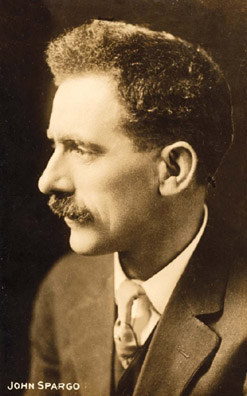
The Social Democratic League of America (SDL) was a short-lived social-democratic political party established in 1917 by electorally-oriented socialists who favored the participation of the United States in World War I. Led by such intellectuals as John Spargo, Emanuel Haldeman-Julius, and Williceam English Walling, the SDL maintained effective control over the venerable American socialist newspaper The Appeal to Reason during 1918, the year of the group's greatest public influence.

Devere Allen (1891–1955) was an American socialist and pacifist political activist and journalist. Allen is best remembered as the main editor of The World Tomorrow following the departure of Norman Thomas from the magazine in 1922. Allen was the author of more than 20 books and pamphlets and was active in the leadership of a number of political organizations, including the League for Independent Political Action (1928–1932) and the Socialist Party of America.

Gaa Paa! was a Norwegian-language newspaper, important for its role in promoting socialism to a Scandinavian immigrant audience in the United States in the early 20th century. It was established at Girard, Kansas in November 1903, and moved to Minneapolis, Minnesota the following year.
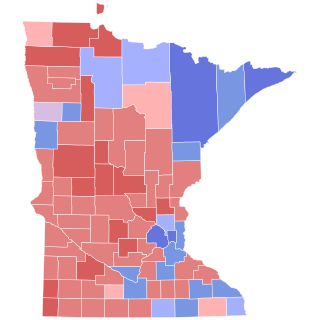
The 2018 Minnesota gubernatorial election took place on November 6, to elect the 41st Governor of Minnesota as incumbent Democratic governor Mark Dayton chose not to run for re-election for a third term. The Democratic nominee was congressman Tim Walz from Minnesota's 1st congressional district while the Republicans nominated Hennepin County commissioner Jeff Johnson. The Independence Party of Minnesota didn't field a candidate for the first time since 1994. Going into the election the polls showed Walz ahead and the race was characterized as lean or likely DFL.

The 2020 United States House of Representatives elections in Minnesota was held on November 3, 2020, to elect the eight U.S. representatives from the state of Minnesota, one from each of its congressional districts. Primary elections were held in six districts on August 11. The elections coincided with the 2020 United States presidential election as well as other elections to the House of Representatives, elections to the United States Senate and other state and local elections.
